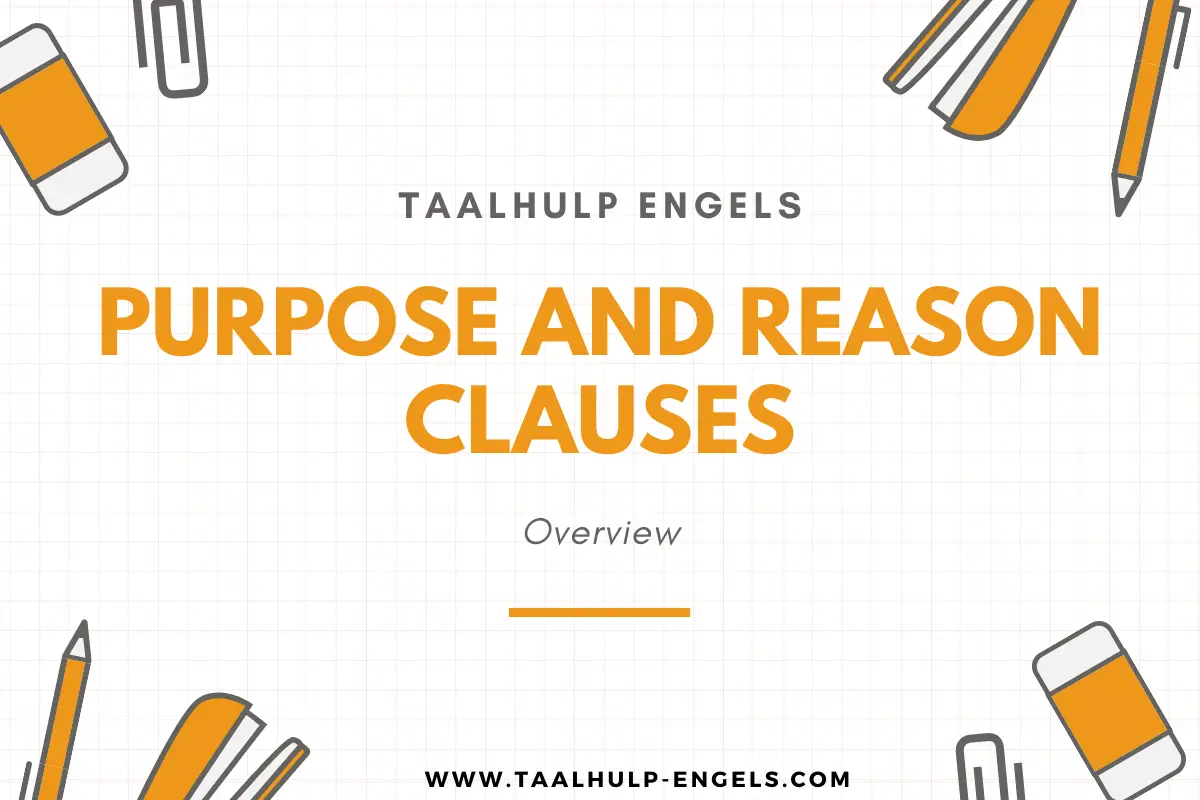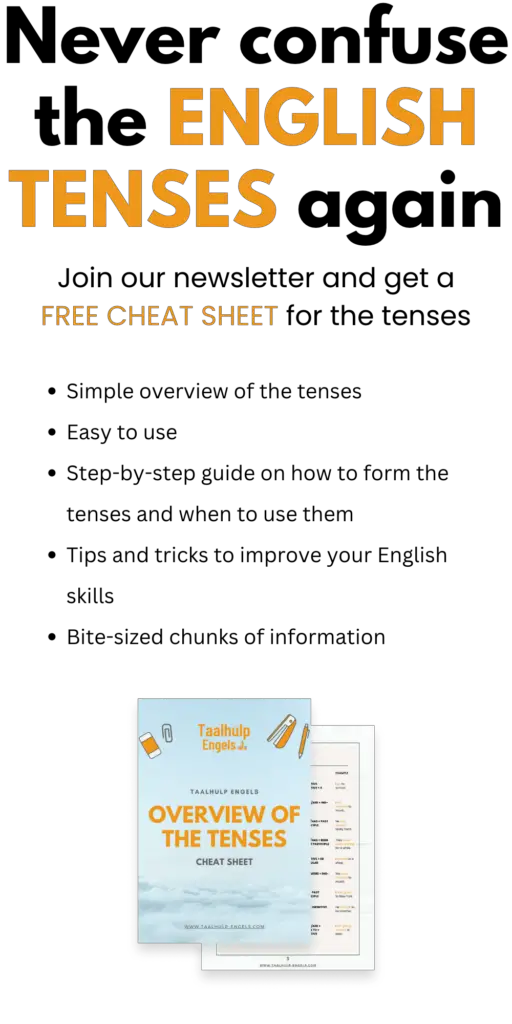There is a difference between main clauses and subclauses in English. Main clauses are independent and don’t require anything else to make sense. Subclauses are different because they need a main clause in order to have any meaning. Subclauses give more information about the main clause.
Two common types of subclauses are purpose and reason clauses. This article offers a complete overview of what purpose and reason clauses are, when you use them and how to form them.

Purpose clauses
Purpose clauses are subclauses that are used to express the purpose of the action in the main clause.
Purpose clause form
Forming purpose clauses is not difficult because you only need a main clause, a subclause, and a conjunction. You put the conjunction before the subclause to indicate that this particular subclause is a purpose clause and that the subclause gives more information about the purpose of the main clause. Take a look at the examples below:
| Main clause | Conjunction | Subclause |
|---|---|---|
| I always travel by bike | so that | I don’t pollute the environment. |
| We go to school | to | get a degree. |
| He drinks tea | in order to | lose weight |
Conjunctions for purpose clauses
If you want to use a purpose clause, there are a couple of conjunctions you can use:
- so that
- to + infinitive
- in order to + infinitive
- for + (pro)noun + to + infinitive
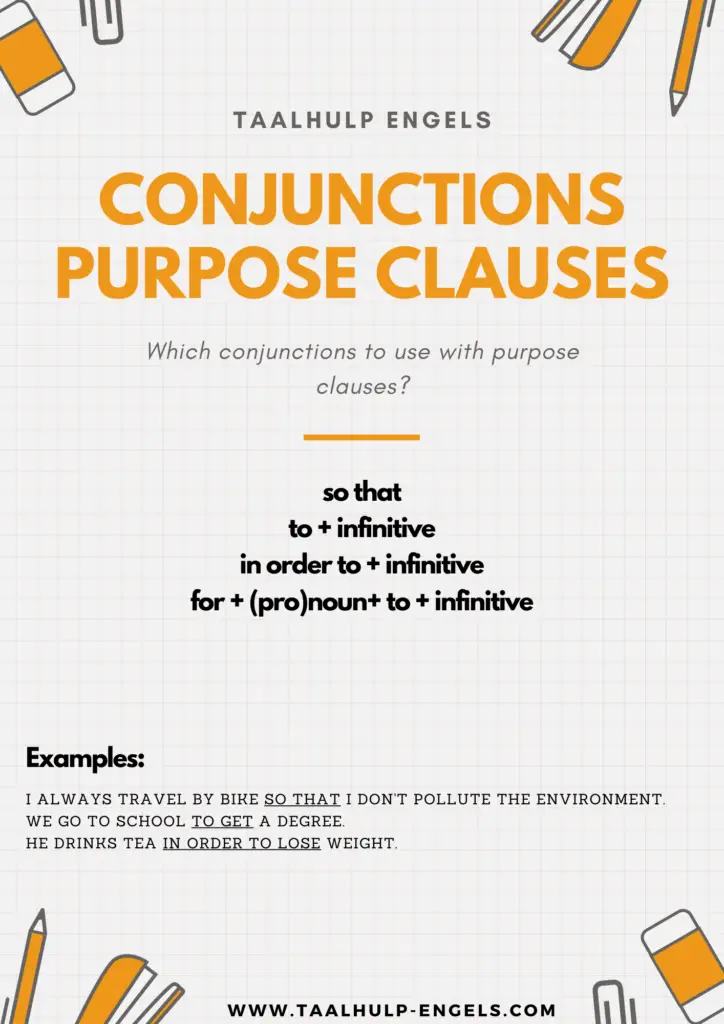
Reason clauses
Reason clauses are a different type of subclause and are used to express the reason for the action in the main clause. These subclauses usually answer the question of why something happened.
Reason clause form
Just like purpose clauses, reason clauses are easy to form. If you want to form a reason clause in English, you need a main clause, a conjunction and a subclause. Keep in mind that the conjunctions are different from the ones you use for purpose clauses.
You put the conjunction before the subclause to indicate that it is the reason for the action that is expressed in the main clause. Take a look at the examples below:
| Main clause | Conjunction | Subclause |
|---|---|---|
| I was too late | because | I missed my bus. |
| My flight was cancelled | due to | bad weather. |
| She lost a lot of weight | as a result of | a healthy lifestyle |
Conjunctions for reason clauses
If you want to use a reason clause, there are several conjunctions you can use:
- because
- as
- since
- because of
- due to
- on account of
- as a result of
- owing to
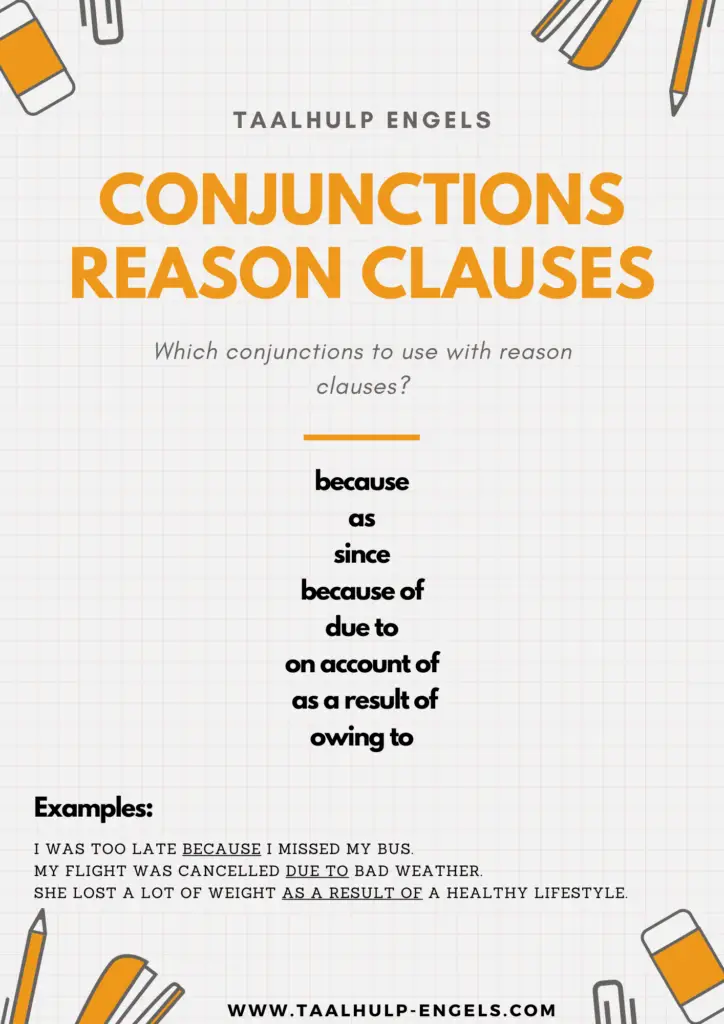
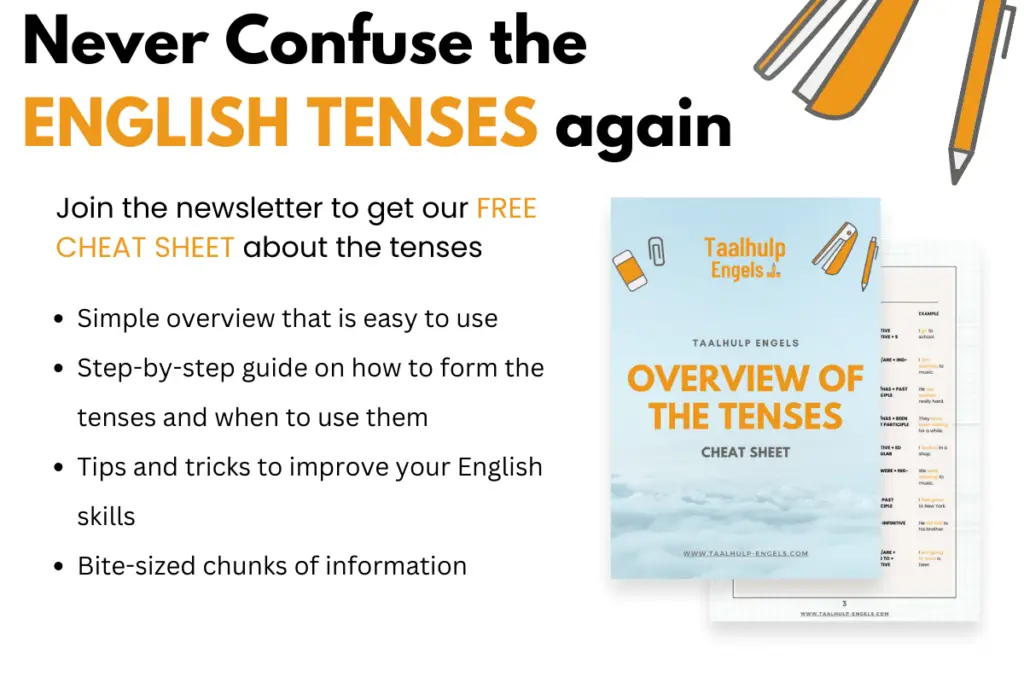

Exercises
- Purpose and Reason Clauses Multiple Choice Exercise 1
- Purpose and Reason Clauses Multiple Choice Exercise 2
- Purpose and Reason Clauses Multiple Choice Exercise 3
- Purpose and Reason Clauses Multiple Choice Exercise 4
- Purpose and Reason Clauses Multiple Choice Exercise 5

